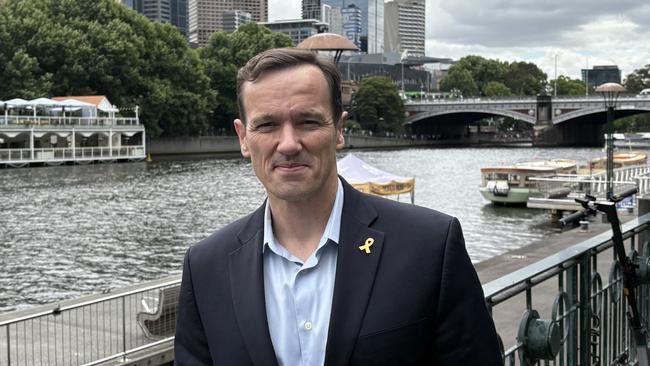A wounded Hezbollah is close to a ceasefire deal with Israel: military expert
Hezbollah has hinted it may be prepared to withdraw its forces from southern Lebanon, as Iran reportedly pushes the group toward a ceasefire.

Israel is closing in on a ceasefire deal with Hezbollah because of its successfully targeted campaign against the terrorist group’s leadership in the face of a weakened Iran, prominent military strategist John Spencer says.
Hezbollah has stopped insisting on linking a ceasefire in Lebanon to a ceasefire in Gaza and has hinted it may be prepared to withdraw its forces from southern Lebanon.
It comes as Iran’s supreme leader is reported to be pushing Hezbollah towards a ceasefire, telling the group it should move its forces north of the Litani River, in accordance with UN Security Council resolution 1701, which ended the 2006 Israel-Hezbollah war,
Ali Larijani, a senior adviser to Ayatollah Ali Khamenei, passed messages to Hezbollah on Friday that said he supported ending the conflict, but assured the group it would continue to receive financial and military support, the New York Times reports.
Senior US and Israeli officials say there has been progress in ceasefire talks between Israel and Hezbollah, although a key sticking point remains Israel’s demand for freedom of action in Lebanon if the terrorists seek to rearm.
Mr Spencer, chair of urban warfare studies at West Point, believes Israel’s war against Hezbollah in Lebanon is reaching a tipping point where Hezbollah will push for peace rather than keep fighting a protracted conflict.
“Israel has been so effective in its targeted campaign against Hezbollah while also showing the will to continue to clear them out of southern Lebanon that Hezbollah is at the point where it would be willing to make that kind of agreement,” Mr Spencer told The Australian in Melbourne.
He said it never made sense for Hezbollah to keep insisting that any ceasefire was dependent upon a ceasefire between Israel and Hamas in Gaza because “Hezbollah and Hamas are not that close”.
“I believe there is actually a very clear route to a ceasefire,” said Mr Spencer, a former US army veteran who served two tours of Iraq.
“I think Israel would accept a Hezbollah agreement to stop firing, and then even just to go back to (UN Resolution) 1701 and agree to not (occupy southern Lebanon) and to stop sending rockets at Israel.
“I think the Israeli people would welcome that, and the government would as well.”
However, he believed Israel would insist on “continuing the clearing operations, to clear out what is not supposed to be there (Hezbollah forces). You can trust, but you’ve got to verify.”
Israel has continued to target Hezbollah military sites across Lebanon, including in Beirut, despite mounting civilian casualties. The ongoing aerial bombing campaign has been supported by an Israeli ground offensive into southern Lebanon to clear Hezbollah positions near Israel’s northern border.
It follows a devastating Israeli assault on Hezbollah’s leadership in September in which thousands of its fighters and commanders were wounded by remote-controlled explosions of Hezbollah-issued pagers and walkie-talkies and the assassination of leader Hassan Nasrallah and several of his deputies.
Mr Spencer said Israel’s ambition was not to occupy Lebanon and he said it was impossible to completely destroy Hezbollah because “it’s a part of Lebanon society, in many ways, because of the Iran funding to Hezbollah which gives them political power in Lebanon”.
Instead, he said Israel’s main military aim was simply to create the conditions for more than 60,000 displaced Israelis to return to the homes they were forced to flee because of the near daily-rocket attacks by Hezbollah over the past year.
Hezbollah has continued to fire missiles and rockets at northern Israel despite Israel’s escalated air and ground offensive against its forces.
Mr Spencer said Israel’s campaign against Hezbollah had been helped by the fact that Hezbollah’s main sponsor, Iran, had been weakened by the conflict, which has seen direct Israeli strikes against Iran.
“You cut the money from Hezbollah and it has much less power, period,” he said.
Mr Spencer said the effect of Israel’s heavy attacks on Hezbollah in Lebanon in recent months had been to re-establish “the deterrence factor” for Israel, such that terrorist groups would be reluctant to attack it for fear of the scale and effectiveness of the reprisals.




To join the conversation, please log in. Don't have an account? Register
Join the conversation, you are commenting as Logout